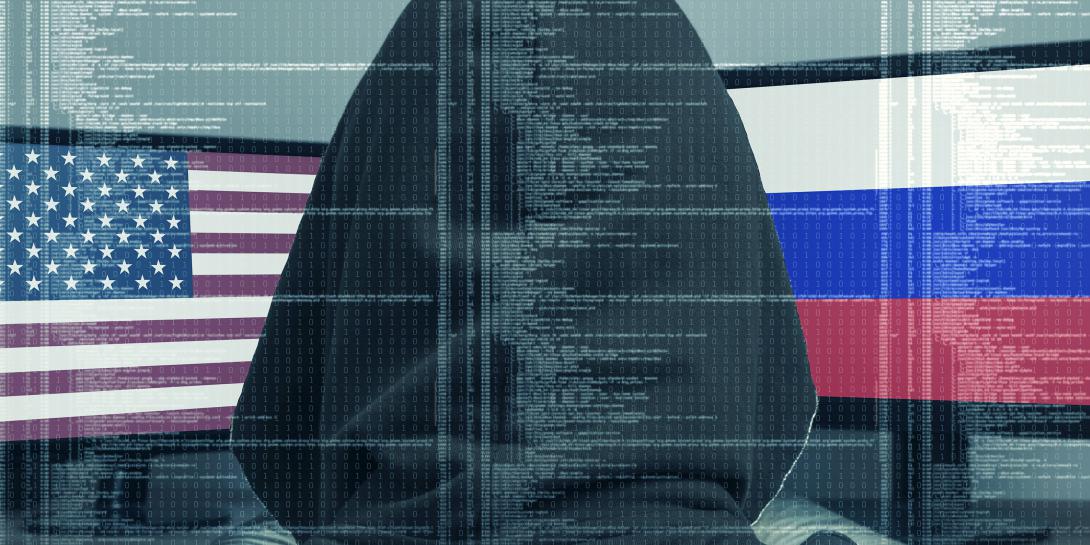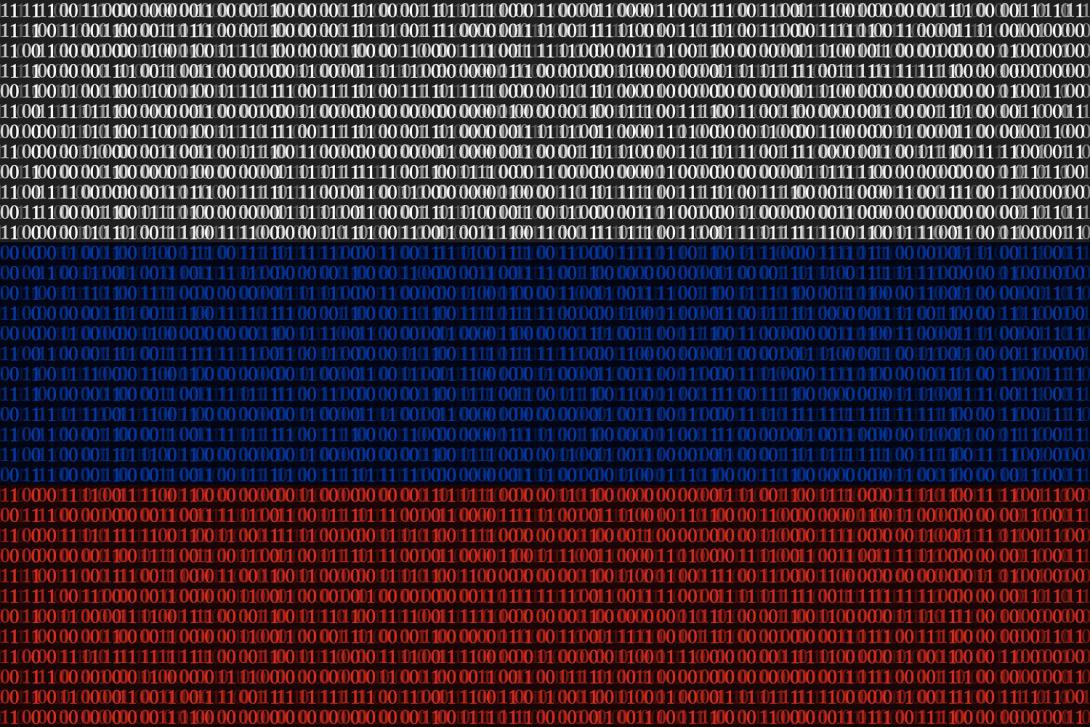Cyberwar Is a Two-Way Street for Russia
Russia’s well-known cyber attacks on Western nations could be setting the country up for a powerful backlash, offers a retired U.S. Army expert formerly based in Moscow. After years of relentless penetrations and attacks on databases and infrastructure in U.S. and NATO countries, Russia now is finding itself as much—if not more—of a target of reciprocal cyber assault capabilities increasingly wielded by the West.
Two factors are at play in this scenario. First, western countries such as the United States have built up offensive cyber weapons and tactics to use as they choose. Second, Russia has focused for so long on using its own offensive cyber capabilities that it has not given as much consideration to the defensive side of cyber operations, not realizing the countries they might attack digitally have been developing their own capabilities to use on an increasingly vulnerable Russian cyberspace.
Russia may already have felt the potential wrath of offensive U.S. cyber operations, suggests Brig. Gen. Peter B. Zwack, USA (Ret.), former U.S. defense attache in the Moscow embassy from 2012-2014 and currently a Wilson Center global fellow in the Kennan Institute.
“I think the Russians have been tapped on the shoulders a few times,” the general states. “‘You go this way, and we will unleash cyber hell on you back. Don’t do it,’” he says, offering his interpretation of what the U.S. dialogue might have been.
Gen. Zwack notes that the Russians have been in U.S. networks for years and have the ability to carry out enormous destruction, but the United States is better than it used to be. “While we are vulnerable, we may not be critically vulnerable anymore,” he says, noting that the United States still may have “major, major seams.”
Russian cyber warriors could attack the banking grid, cripple credit card use and wreak financial havoc. There have been isolated cases of Russian hackers penetrating the power grid along with other elements of the critical infrastructure. “There is no doubt they can create enormous chaos throughout complete levels of our society,” the general declares. “But there will be a ferocious payback.”
He continues that the Russians already are extremely vulnerable, and they are doing workarounds for their banking systems. Their oil trade also is suffering as a result of the sanctions imposed by the West.
U.S. vulnerabilities may enable the Russians to create kinetic effects using cyber attacks, such as by shutting down dams or opening their floodgates. That type of cyber-inspired kinetic attack would be an act of war, Gen. Zwack offers.
“While we are in the shadow war right now—in the gray zone war in cyber—something like that would be declaration of full war,” he continues. “There is a lot they could do, but I think we’re on it now, and we and our allies are formidable.” He adds that Russia likely would “go heavy” with cyber in Europe along with an attack on U.S. assets.
Russian cyber attacks on the infrastructure would be hard for its government to claim non-attribution, Gen. Zwack states. While they do have hacker teams working out of sanctuaries within and outside their borders, their attacks would be traced and noted. And their actions would have another effect.
“Yes, they have their so-called patriotic hackers,” the general points out. “But, oh boy, we do too.”
Gen. Zwack states that U.S. Cyber Command (CYBERCOM) has “a lot of imaginative people,” as do other organizations. Patriotic U.S. hackers will choose their own course, but the government has ways of enlisting them. “It probably is happening … because we are on the edge of a potentially existential fight,” he offers. “I’m absolutely sure that our official world and elements in the private hacking world are talking.”
The U.S. political system pulled together when Russia invaded Ukraine, and it will do the same if Russia launches a cyber attack, “as ugly as it could be,” the general offers.
And that existential cyber conflict would be far from a gentle disagreement. “It would be horrific, but the Russian authorities are already having to do workarounds, whether it is in their regime, in their military, in their banking system or in their society,” he continues. “So they are really vulnerable for a push back.”
Because the Russians have been focusing so much on their offensive cyber capabilities versus the United States, it is possible they overlooked their defensive cyber needs as part of their overall hubris, the general offers. “I don’t think they expected to be where they are right now. They’re in a desperate situation right now in Ukraine, and all of this is going to blow back.
“Hell hath no greater furies than democracies scorned—and they’ve done that, just as the Nazis saw in World War II,” he warrants.
“Now, if they do come back at us in the cyber realm, they’ll just [anger] us more,” the general states. “They know that, if focused—and we are focused and we’re aroused—we can be a nightmare in the cyber realm.”
Meanwhile, the United States has strengthened defenses for critical military systems, including the nuclear command authority. If the Russians were to launch a cyber attack on U.S. nuclear command and control, the response would be even more ferocious, Gen. Zwack warrants.
One major cybersecurity problem is the firewall between government and industry. Gen. Zwack says that firewall “needs to be nicely knitted between them” with coordinated responses if one is hit and the other is not. A key to this is having a common operational picture, “whether a hard-core brilliant analyst working in a top bank or somebody working deep in the Cyber Command,” he emphasizes.
Obviously, there are classification issues, he notes, but the two sides need to be knitted together and then knitted with our allies.
NATO allies and the European Union (EU) are looking at options for cyber rapid response teams that would serve as first responders, with the Baltic republics of Lithuania, Latvia and Estonia leading the way, he relates. One such EU team, which is led by Lithuania, already has been dispatched to assist Ukrainian institutions with defense against cyber attacks.
“It’s not just the United States and NATO,” Gen. Zwack emphasizes. “It’s the like-minded world—a grouping of democracies that have to be on the same sheet of music. This encompasses cross-talk, cross-coordination, redundancy and the ability to counterattack in the cyber domain, which ideally would preempt an attack by Russia.
“The first really aggressive move would come from the Russians,” he predicts. “Then the question is, how aggressive is it? Would they put us in a state of war?”
Cyber also is an arena where the increasingly important information war is being waged. While Russia and the United States long have battled for the hearts and minds of the public, Russia has stepped up its efforts in recent years. However, Gen. Zwack offers that the United States and NATO now are beginning to win the information war. He cites how the West exposed Russian plans for false-flag provocations in Ukraine as major strikes in the information realm. Even with the Russian government erecting an Internet firewall to keep the truth away from its citizens, that firewall is beginning to chip away from the extensive social media environment in that country, the general says.
“We have something that is relentlessly dangerous to the regime,” he reports. “That is: truth.”
Russia and China have been working together to thwart Western security measures, and some U.S. intelligence reports have described Russia asking for assistance as it struggled in Ukraine. Both countries have active cyber operations aimed at the United States, and China is well-known for its industrial and military espionage successes with U.S. secrets. If China and Russia were to combine their efforts at cyber operations against the United States, it could cause great difficulties for this country, but Gen. Zwack believes that is not as likely as some fear.
“What Russia has done so odiously and unbelievably barbaric [in Ukraine], that it would strategically be a bad thing for China if Russia would fail,” the general says. “Both of them have each other’s backs diplomatically, sort of economically and up to a point militarily. But I don’t think this is the cause that China would want to jump in on. China is at a pivot point.”
He continues that China’s “erstwhile strategic partner could possibly drag them into somewhere they don’t want to go.” He offers that China is acutely uncomfortable with Russia’s activities even though it doesn’t want Russia to go down. Russia’s invasion of Ukraine violates all international standards of sovereignty, which is a key point in China’s geopolitical outlook, especially with regard to Taiwan, which it considers part of China.
As far as Russia and the United States are concerned, the cyber battle is already on, Gen. Zwack declares. “In the gray zone, I’m sure there is a battle going on, but neither side has gone into what you would call an egregious go-to-war set,” he says.
He warns that if the Russian mission in Ukraine continues to “bleed from a thousand wounds” and the Kremlin feels greater pressure, then there is a very real chance that it could use cyber in extremes. “Maybe the cyber bomb is the bomb before the tactical nuke. Who knows? But they have it.”
Yet Gen. Zwack maintains that the Russians “don’t have overmatch” in cyber. Also, the chaos inflicted on Russian society by sanctions and the growing protest movement has left them exposed. Fracture seams are showing in their military force from supply lines to communications, and their vulnerabilities are greater than they expected. About the Russians, the general says, “They’re huge, but they’re not that big. And in the cyber realm, they’d be taking on a lot of stress.”







Comments